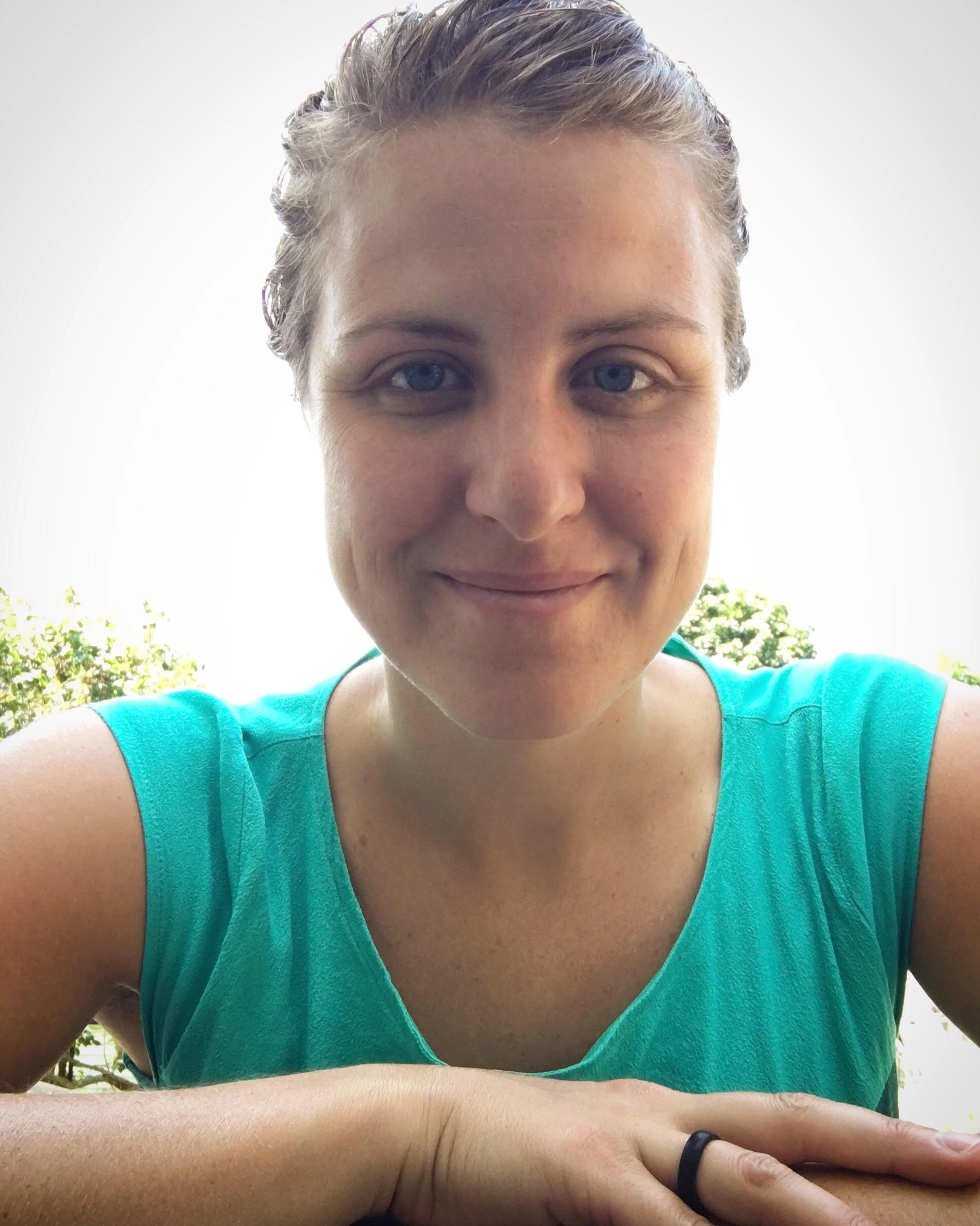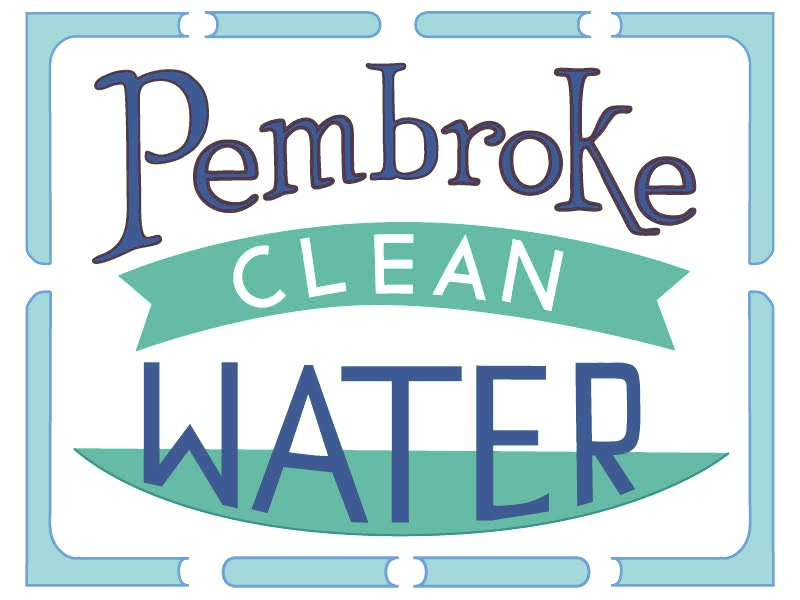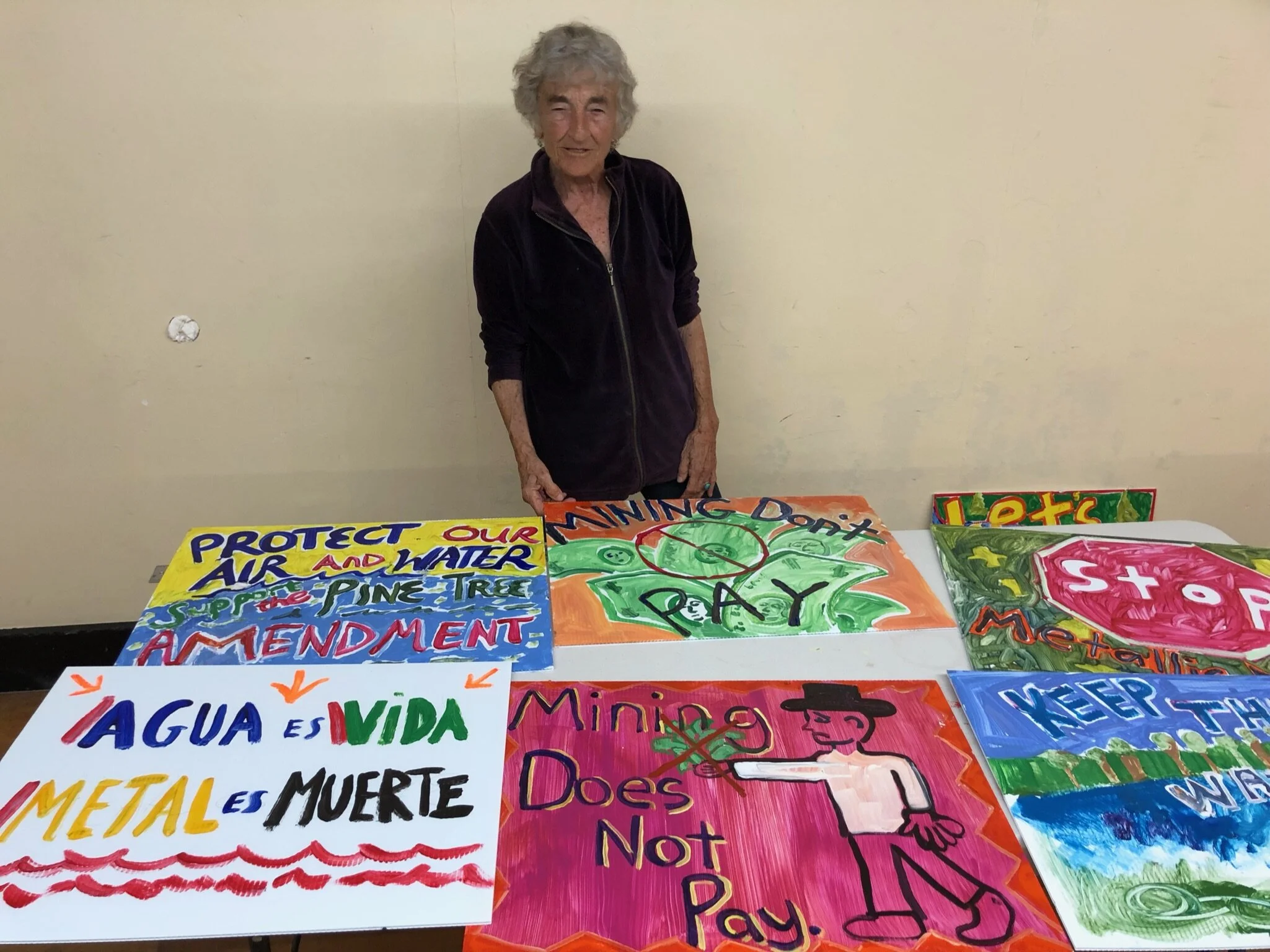Mining in Maine? No Way!
On July 25th, we conducted a teach in at the Blue Hill Grange. On this page you will find a video of the event, audio of our wonderful speakers, written copies of their comments, and photos of the lawn sign painting hosted by ARRT.
There is exploratory mining going on NOW in Pembroke ME, and we are working hard to get the word out and the water tests out as quickly as we can.
We need to act, now!
As we mentioned during the conclusion of the teach in, there are many angles of approach that we must tackle.
I will summarize them here in hopes you might decide to help with one of them, or that you might see something missing that you yourself could do:
1. Video/Tours of the mine site — people must see the impact of the previous mining—Farmer Evangeline is happy to lead a tour!
2. Keeping the website updated with new information
3. Writing articles and op-eds to spread this message WIDELY.
4. Get more of our representatives informed on this issue—and the related Industrial fish farming issue—both of which endanger our clean water and the public trust.
5. Identifying other interest groups / networks in Washington County to share information with (i.e. Quakers, i.e. hunters, i.e. fishermen)
6. Getting donations
7. Petitioning the Governor to intervene
8. Putting forward clean water ordinance at the official town meeting
9. Reaching out to other towns in Cobscook bay asking them to petition Pembroke to prevent mining with a water ordinance
please email cleanwater@greenhorns.org with any ideas, proposals or questions about how you can get involved in this fight.
-

Ralph Chapman
has worked on solar cell research, energy conservation, wind power, energy auditor training, public technical education, and served as a Maine state legislator for eight years representing the only house district with commercial metal mining in the past century. He now lives with his wife and dogs in Bucksport.
Ralph offered an introduction to the mine question, retracing the legislative history of mining in Maine from the disastrous Callahan Mine in Brooksville—which is now a superfund site paid for by Maine tax payers—to the 2017 Mining Bill and the problematic loopholes that continue to threaten our public waters.
You can hear Ralph’s speech here.
-

Lucy Lippard
is author of 2014’s Undermining A Wild Ride Through Land Use, Politics, and Art in the Changing West, Lucy Lippard is one of America’s most influential writers on contemporary art, a pioneer in the fields of cultural geography, conceptualism, and feminist art.
Lucy spoke from her decades of experience thinking and writing about extractive industries, environmental destruction, and the conflicts that arise in the pursuit of modernity.
You can read Lucy’s remarks here.
Or hear her words here.
-

Jan Morrill
spent 5 years in El Salvador supporting the community based and national organizations that pushed El Salvador to pass the first of its kind ban on all metallic mining. She also coordinated with dozens of international organizations that supported the Salvadoran anti-mining movement.
Jan spoke about lessons we can learn here in Maine from the successful anti-mining campaign in El Salvador.
You can hear Jan’s speech here.
-

Andy Burt
has, over the years, launched a Women’s Voices for the Environment campaign for Sierra Club Maine; worked on climate change issues for the Maine Council of Churches; promoted a no-idling campaign; and recruited 26 Maine municipalities to sign the U.S. Mayors Climate Protection Agreement
Andy spoke about the ongoing fight for the Pine Tree Amendment, which would give the people of Maine a constitutional right to a clean and healthy environment, including air, water, land and ecosystems.
You can hear Andy’s speech here.
A note from the Pine Tree Amendment Campaign:
If the Pine Tree Amendment passes, the State of Maine will be constitutionally obligated to ensure that government decision-making - substantively and procedurally - considers environmental impacts early in the process when prevention of pollution, degradation and environmental harm is most possible, and will have to consider science, facts and impacts as part of the decision-making process in order to fulfill it’s constitutional obligations.
In addition, the Amendment will require equitable protection of all communities strengthening environmental justice, so that underserved rural communities do not bear the brunt of ill-conceived extractive industry. The State of Maine will be obligated, as well, to consider the protection of present and future generations. When all else fails, the Pine Tree Amendment will provide a backstop that can be used by community, public, government and business interests to provide a check on government authority that overreaches and fails to protect environmental rights. In addition, because it is self-executing, the Pine Tree Amendment can help address community harms that have not been addressed by existing legislation, regulation or government action, like allowing test drilling to be conducted in Pembroke without a permit.









